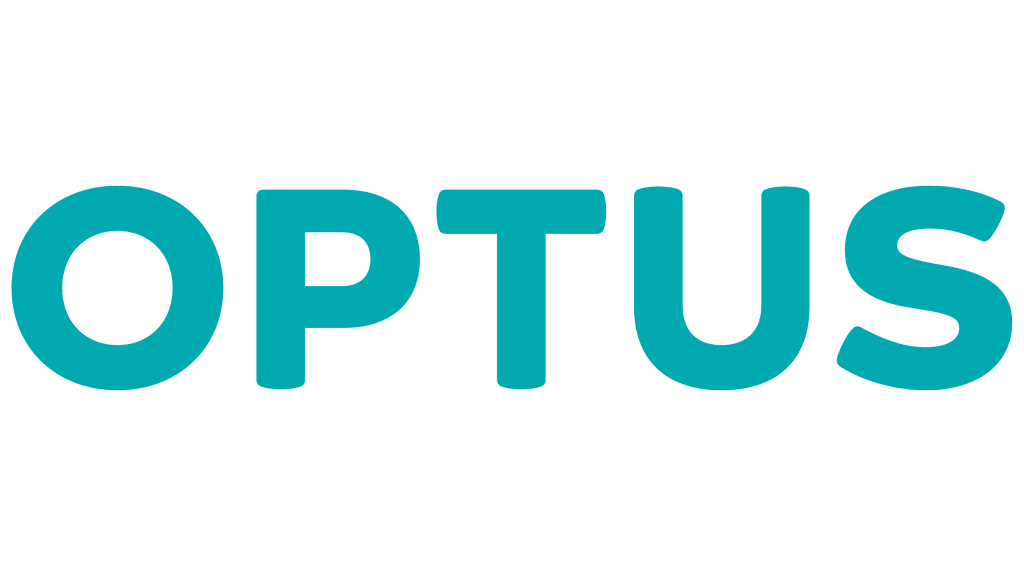




We’ve partnered with Econnex to bring you a range of internet plans to help you compare them.
Internet plans are essential for just about every home. Whether you need it for work, leisure or play, it’s crucial to look for the most suitable internet plan for your needs. You can do just that through Savvy today.
With a group of trusted Australian internet providers behind us, you can compare quality broadband plans side-by-side in one place to help you determine which has the best speed, data, price and other features available to you. Get the process started with a free, no-obligation quote today!
What types of internet plan can I choose from?
When it comes to installing an internet connection in Australia, there are four main types of internet plan you may be able to choose from. These are:
NBN
The National Broadband Network (NBN) is a nationwide initiative in Australia to upgrade our existing internet infrastructure. It involves various technologies to provide high-speed broadband connections to homes. These technologies include Fibre to the Premises (FTTP), Fibre to the Node (FTTN), Fibre to the Curb (FTTC), Hybrid Fibre Coaxial (HFC), Fixed Wireless and satellite connections.
FTTP is considered the most advanced NBN technology as it delivers fibre optic cables directly to your home or office, offering very high-speed and reliable connections. Other technologies like FTTN and FTTC use a mix of fibre and existing copper lines for the final connection. Most Australians now have access to the NBN, but the connection available will depend on what infrastructure is currently present where you live.
Mobile broadband
Mobile broadband utilises the cellular network to provide internet connectivity. It's accessed through devices like smartphones, tablets or mobile hotspot devices such as dongles and is essentially the equivalent of a phone plan without texting or calling capabilities.
This type of connection is convenient as it allows you to connect to the internet on the go, but the speeds and stability can vary based on factors such as signal strength and network congestion. 4G and 5G connections are now available in Australia, which serve as significant upgrades on the 2G and 3G networks.
Home wireless broadband
Home wireless internet, also known as fixed wireless, is similar to mobile broadband but is designed to offer a broader range across an entire premises. It relies on a connection to your local 4G or 5G mobile network to access the internet but does so with a router rather than wirelessly via a SIM or dongle.
This type of connection is seen as the most suitable alternative to the NBN and is used in areas where laying fibre-optic cables isn’t feasible or cost-effective. However, while it can offer decent speeds, its reliance on the mobile network rather than a fixed connection such as the NBN means its effectiveness and speeds can be impacted by your area’s coverage.
ADSL2+
An asymmetric digital subscriber line (ADSL) connection was once the most common type of internet connection in Australia. It uses existing copper telephone lines to transmit data. It's called “asymmetric” because it provides higher download speeds compared to upload speeds.
It’s important to note that, although some providers still offer ADSL internet plans, this type of connection has been almost entirely phased out across Australia in favour of the NBN. Because of this, it’s only really available to those who still don’t have access to the NBN, which may still be the case in rural parts of the country.
Why compare internet plans with Savvy?
The entire comparison process is free with us, meaning you can use it as many times as you like.
You'll be able to consider competitive offers from some of Australia's leading internet providers before you buy.
You can compare plans 24/7 with our online form regardless of where in Australia you're living.
How to compare internet plans
Identify your needs
Before you start comparing plans, it’s worth understanding your internet usage requirements. Consider factors such as the number of devices connected, the type of activities you engage in (like streaming, gaming or browsing) and the number of people using the connection. This will help you determine the appropriate speed and data allowance for your plan.
Check speed options
Different plans offer varying speeds, so it's important to choose a plan which meets your speed requirements. Look for those which provide sufficient download and upload speeds for your online activities. For example, if you stream 4K videos or engage in online gaming, you may need a plan with higher speeds.
Data allowance and unlimited plans
Evaluate your data usage patterns. If you consume a large amount of data through streaming, downloading, or online gaming, consider plans with higher data allowances or unlimited data options. Be cautious about potential data caps, as exceeding them can result in additional charges or reduced speeds. However, if you don’t use that much data across the month, an unlimited plan may not be necessary for you.
Prices and additional benefits
Compare the costs of different plans, including the monthly fees and any associated setup or equipment costs. Don't solely focus on the initial price; consider the overall value you're getting. Some plans might include additional benefits like a free modem or router, antivirus software or streaming service subscriptions. Factor in these extras when assessing the plan's value.
Contract terms and fees
Review the contract terms carefully. Some plans require you to commit to a contract for a specific duration, such as six to 12 months, while others offer month-to-month flexibility. Pay attention to early termination fees and any hidden charges like installation fees or equipment costs. Opt for plans that align with your preferred contract length and budget.
How to buy an internet plan through Savvy
All you'll need to do to complete the simple form in minutes is provide your address, contact details and confirm whether you're moving house.
Once you've done this, you'll be able to filter offers for your address based on their cost, data, connection type, provider, and contract length.
If you find one you like, you can go ahead and complete the purchase online with the relevant personal and payment details. It really is that easy!
Internet Top Tips
Keep an eye on promotions and introductory offers from various providers, as some may offer promotions such as discounted rates for the first few months of service for new customers. If you're willing to switch providers, you might be able to take advantage of these initial savings.
Many providers offer bundle packages which include internet and phone services. Bundling can often result in lower overall costs compared to purchasing these services separately. However, make sure to assess whether both services are suitable for you before you buy.
Periodically review your internet plan to ensure it aligns with your current needs. For example, if you find you consistently aren’t using all the data or speed included in your plan, you may wish to consider downgrading to a more suitable and cost-effective option.
Some internet plans may offer added extras on top of the plan itself, such as entertainment packages like Netflix and other streaming services or a landline phone. Think about whether these extras are necessary for you, as trimming down in areas which aren’t essential can also reduce your bill.
You may consider purchasing your own modem in some cases. Doing so can lead to overall savings, as you might be able to find a suitable modem for a cheaper price. However, as some providers may offer these for free and charge extra fees for BYO modems, consider which option is best for you.
In the event you’re happy with the service you’re receiving but would like to lower the price, you can also try to negotiate with your provider. This can be especially effective if there are cheaper offers in the market, as you can ask if they’re able to match the price (or even beat it).
Frequently asked questions about internet plans
No – if you’ve converted your ADSL plan to an NBN plan, you’ll be unable to switch back. This is because any existing ADSL cables will have been either integrated into your NBN connection or disconnected entirely. ADSL connections are no longer being built either, so plans are only available to those who are already on ADSL broadband.
There are several fees which can be charged on an internet plan, with costs and whether they’re charged varying between providers. These can include:
- Setup fee
- New development fees (when new NBN equipment needs to be installed from scratch)
- Non-direct debit fee
- Late payment fee
- Failed direct debit fee
- Paper bill fee
Yes – however, you’re likely to be met with fees for doing so prior to the completion of your contract, so be mindful of that when deciding whether to cancel your plan. Think about whether the cost of cancelling early is outweighed by the benefits of switching to a new plan before the end of your term.
The speed tier you need will depend on your connection needs and those of the people living with you (if any). The following speed tiers are available through the NBN, with each representing the maximum possible speeds:
- NBN 12: 12Mbps download/1Mbps upload
- NBN 25: 25Mbps/10Mbps
- NBN 50: 50Mbps/20Mbps
- NBN 100: 100Mbps/20Mbps or 100Mbps/40Mbps
- NBN 250: 250Mbps/25Mbps
- NBN 1000: 1Gbps/50Mbps
Yes – one of the easiest ways to do this is to reduce the number of devices operating on your Wi-Fi network at any one time, so that there’s more bandwidth to go around. Other things, such as not using the internet as much during peak hours or shutting off background programs, can help speed up the connection to your TV or phone.
Upload speed is particularly important for internet users who are looking to upload large files such as videos and/or extensive documents on their internet plan. Having to wait around for minutes, or even hours, for files to upload isn’t viable for those who need to do so for work.
Compare internet plans today
Disclaimer:
Savvy is partnered with Econnex Comparison (CIMET Sales Pty Ltd, ABN 72 620 395 726) to provide readers with a variety of internet plans to compare. We do not compare all retailers in the market, or all plans offered by all retailers. Savvy earns a commission from Econnex each time a customer buys an internet plan via our website. We don’t arrange for products to be purchased directly, as all purchases are conducted via Econnex.
Any advice presented above is general in nature and doesn’t consider your personal or business objectives, needs or finances. It’s always important to consider whether advice is suitable for you before purchasing an internet plan. For further information on the variety of internet plans compared by Econnex, or how their business works, you can visit their website.

